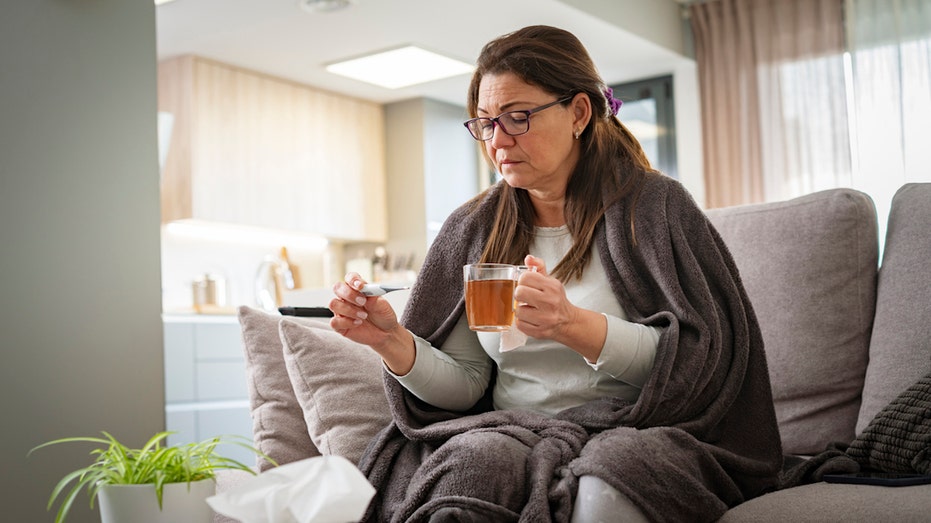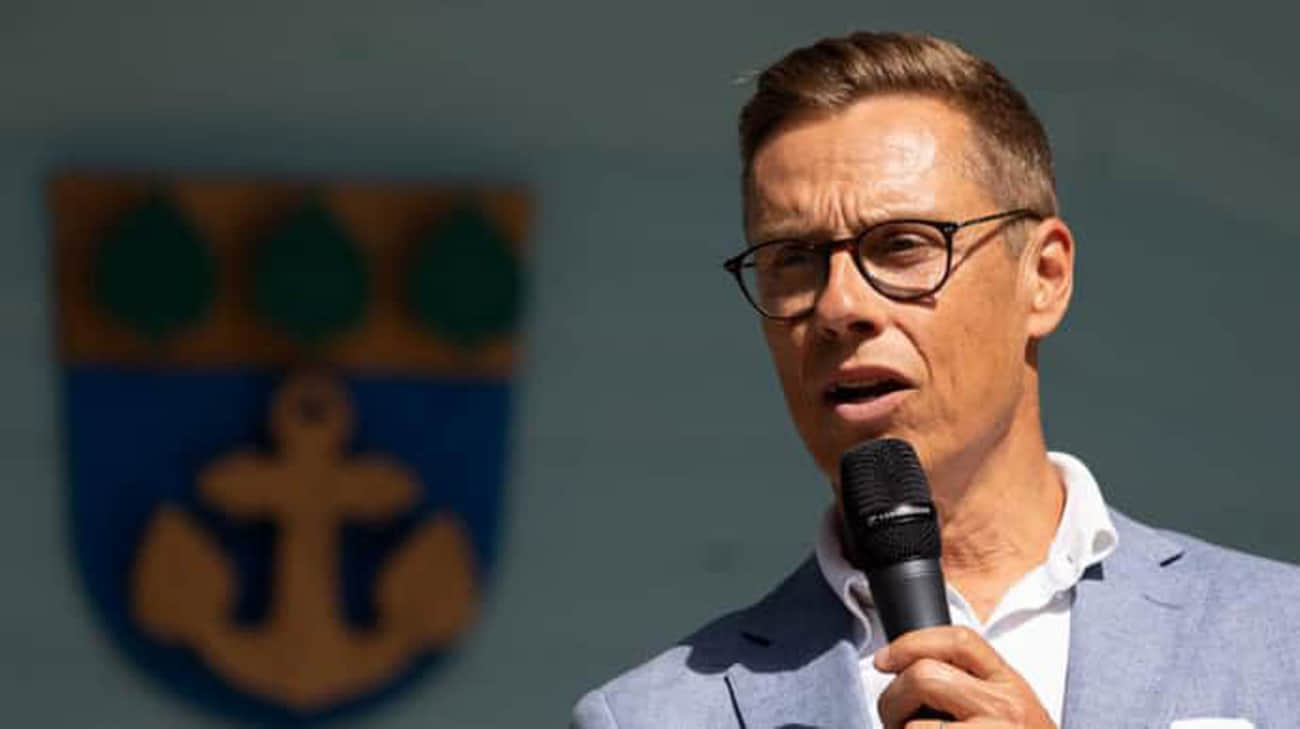Secretary Antony J. Blinken With Radio France Internationale
Antony J. Blinken, Secretary of State Abidjan, Côte d'Ivoire Via Translation QUESTION: Hello, Antony Blinken. SECRETARY BLINKEN: Hello. QUESTION: Ivory Coast shares borders with countries that are completely overwhelmed by insecurity, such as Mali and Burkina Faso. What type of assistance does the United States propose to help Ivory Coast repel these threats? SECRETARY BLINKEN: Specifically, security support to help Ivory Coast confront these threats. In the north, where we have Burkina Faso and Mali, there’s always the danger that something starting in one country could spread to another. We are very aware of this. There is a comprehensive security program built on what the Ivorians are already doing. I believe their security program in the north, which is community-based and where there is now better understanding and cooperation between security forces and citizens, forms the foundation of a security system that can truly work and meet the needs of those who are in danger, first of all. Additionally, there is support in terms of equipment, technology, and information that, I hope and believe, assists the Ivorians in facing existing threats. QUESTION: Do the United States intend to go further in their aid, for example, by considering the establishment of a military base in the north, in Korhogo, for instance? SECRETARY BLINKEN: All of that remains to be seen. For now, we are focused on concrete assistance that can make a difference. During this visit, I was able to announce additional aid for Ivory Coast, both financial aid and military equipment that is needed to confront extremists. QUESTION: You also announced an additional $45 million in aid for coastal countries. Specifically, how will this money be used? SECRETARY BLINKEN: It will be used for a number of things. It’s going to translate into the equipment needed to confront the dangers. It will translate into technologies that can also be used to enhance security. It should also translate into cooperation among various experts. All of this is part of the program, and I believe it can make a difference in securing the places that are at risk. QUESTION: In the Sahel, you were in Niger last year. In the meantime, there has been a coup. The United States still maintains a military presence in the country, but we know that the junta also has other ideas, such as multiplying other partnerships and offers. For you, the United States, what is the red line that should not be crossed? SECRETARY BLINKEN: You know, I was indeed in Niger a few weeks, a few months anyway, before the coup. I was with President Bazoum, someone who was a very good leader for Niger and a great partner for other countries. And, by the way, he should be released immediately. He should have been released; it should have happened already. He should have been released from day one. His son has now been released. We are waiting for the release of President Bazoum. That’s one thing. QUESTION: Is this a requirement for you? SECRETARY BLINKEN: Excuse me? QUESTION: Is this a requirement for you? SECRETARY BLINKEN: It’s a requirement, a necessity. And I would say to those who have taken power in this way, they can imagine their future. What happens if someone else does the same thing to them? But there’s another requirement – and it’s not a requirement from the United States, it’s from ECOWAS, and there was a very important meeting late last year with ECOWAS heads of state – a requirement for Niger to get back on the road to democracy, for this coup to finally come to an end, and for there to be a clear transition within a short timeframe for a return to the democratic system, a system that represents the people of Niger. If this happens, we can act accordingly. In other words, all the aid and cooperation we have suspended, given the junta’s actions, can be put back into play. But that depends entirely on the CNSP’s approach. Are they putting Niger back on the right track? If so, I think the international community, including the United States, will be able to respond, and respond positively. If not, obviously, the relationship between us and Niger, and between many other countries and Niger, will be in a completely different shape. QUESTION: And about the idea of looking at other partners, especially Russia for example, is that something that you can consider, working in the same areas with such partners? SECRETARY BLINKEN: The problem we’ve seen a bit across Africa in countries that have decided to entrust their fate to groups like Wagner, for example, Russia, is that violence, destruction, terrorism, abuse of resources, and abuse of the people follow. We’ve seen it every time. Instead of seeing better security for the people in question, insecurity has actually increased in all the countries where, for example, the Wagner group operates or operated. So, to us, that’s not the answer. Quite the opposite. That being said, we obviously need to resp

Antony J. Blinken, Secretary of State
Abidjan, Côte d'Ivoire
Via Translation
QUESTION: Hello, Antony Blinken.
SECRETARY BLINKEN: Hello.
QUESTION: Ivory Coast shares borders with countries that are completely overwhelmed by insecurity, such as Mali and Burkina Faso. What type of assistance does the United States propose to help Ivory Coast repel these threats?
SECRETARY BLINKEN: Specifically, security support to help Ivory Coast confront these threats. In the north, where we have Burkina Faso and Mali, there’s always the danger that something starting in one country could spread to another. We are very aware of this. There is a comprehensive security program built on what the Ivorians are already doing.
I believe their security program in the north, which is community-based and where there is now better understanding and cooperation between security forces and citizens, forms the foundation of a security system that can truly work and meet the needs of those who are in danger, first of all. Additionally, there is support in terms of equipment, technology, and information that, I hope and believe, assists the Ivorians in facing existing threats.
QUESTION: Do the United States intend to go further in their aid, for example, by considering the establishment of a military base in the north, in Korhogo, for instance?
SECRETARY BLINKEN: All of that remains to be seen. For now, we are focused on concrete assistance that can make a difference. During this visit, I was able to announce additional aid for Ivory Coast, both financial aid and military equipment that is needed to confront extremists.
QUESTION: You also announced an additional $45 million in aid for coastal countries. Specifically, how will this money be used?
SECRETARY BLINKEN: It will be used for a number of things. It’s going to translate into the equipment needed to confront the dangers. It will translate into technologies that can also be used to enhance security. It should also translate into cooperation among various experts. All of this is part of the program, and I believe it can make a difference in securing the places that are at risk.
QUESTION: In the Sahel, you were in Niger last year. In the meantime, there has been a coup. The United States still maintains a military presence in the country, but we know that the junta also has other ideas, such as multiplying other partnerships and offers. For you, the United States, what is the red line that should not be crossed?
SECRETARY BLINKEN: You know, I was indeed in Niger a few weeks, a few months anyway, before the coup. I was with President Bazoum, someone who was a very good leader for Niger and a great partner for other countries. And, by the way, he should be released immediately. He should have been released; it should have happened already. He should have been released from day one. His son has now been released. We are waiting for the release of President Bazoum. That’s one thing.
QUESTION: Is this a requirement for you?
SECRETARY BLINKEN: Excuse me?
QUESTION: Is this a requirement for you?
SECRETARY BLINKEN: It’s a requirement, a necessity. And I would say to those who have taken power in this way, they can imagine their future. What happens if someone else does the same thing to them? But there’s another requirement – and it’s not a requirement from the United States, it’s from ECOWAS, and there was a very important meeting late last year with ECOWAS heads of state – a requirement for Niger to get back on the road to democracy, for this coup to finally come to an end, and for there to be a clear transition within a short timeframe for a return to the democratic system, a system that represents the people of Niger. If this happens, we can act accordingly. In other words, all the aid and cooperation we have suspended, given the junta’s actions, can be put back into play. But that depends entirely on the CNSP’s approach. Are they putting Niger back on the right track? If so, I think the international community, including the United States, will be able to respond, and respond positively. If not, obviously, the relationship between us and Niger, and between many other countries and Niger, will be in a completely different shape.
QUESTION: And about the idea of looking at other partners, especially Russia for example, is that something that you can consider, working in the same areas with such partners?
SECRETARY BLINKEN: The problem we’ve seen a bit across Africa in countries that have decided to entrust their fate to groups like Wagner, for example, Russia, is that violence, destruction, terrorism, abuse of resources, and abuse of the people follow. We’ve seen it every time. Instead of seeing better security for the people in question, insecurity has actually increased in all the countries where, for example, the Wagner group operates or operated. So, to us, that’s not the answer. Quite the opposite.
That being said, we obviously need to respond to an issue by offering a solution, because if people don’t have a choice, obviously, they will do what they think is necessary. So, that’s precisely what collaboration does, as well as our cooperation, our security programs, the investments we make, the collaboration we have – they’re here to address this problem, to provide another choice. But here, too, I think African countries must also do their utmost by supporting each other. ECOWAS has a very important role to play as well. Leading countries like Nigeria, Kenya, and others are expected to play a role in this.
QUESTION: Speaking of ECOWAS, as you mentioned, it has been confronted a series of coups since last year. What expertise or support does the United States provide to ECOWAS to try to maintain democracy in the sub-region?
SECRETARY BLINKEN: It’s both diplomatic support and support through dialogue and discourse. For example, during the United Nations meeting in September, I gathered the leaders of ECOWAS countries over those two weeks in New York precisely for us to reflect together on the best collective action we can take in response, for example, regarding Niger. And having said that, it’s no secret that there are obviously differences, different views between ECOWAS countries. It’s important to find greater coherence. That’s important.
And it’s really the role of ECOWAS leaders to try to find it, but they will have, and they do have the support of the U.S. What we’re trying to do is to ensure that there are African solutions to Africa’s problems, with support, if desired, from the United States. We can’t be a substitute for African countries. On the contrary, we want to support them and act together. Because we’re no longer in a scenario where we’d ask, “What can we do for Africa?” It’s more like, “What can we do with Africa?” So, we’re trying to have real partnerships where we listen, because we not only have lessons to give, we also have lessons to receive. And we must especially listen to our partners to try to understand what can succeed, what can work as we face challenges. That’s the kind of partnership we’re trying to build.
But these problems are very, very difficult. And often, there’s an economic foundation, or challenge, a lack of opportunities, people working to put food on the table for their children – if they have no choice, they might be ready for anything. It’s an environment where extremism, radicalism can take hold. So, there is a need for an economic response, a governance response, because if people don’t believe that their government is working for them, and if there are abuses against the citizens, in this case too, they will be ready to find another solution.
And there are security issues. We have a plan drawn up by President Biden’s administration, approved by Congress, which precisely acts at these three levels over 5-10 years. Because all of this requires investments that may be administered over a long period of time, but that can change the fundamental data and foster much more resilient societies. Ultimately, that’s the answer, but in an emergency situation, action is also needed, and we’re trying to do both.
QUESTION: Last week, the Chinese foreign minister was here in Abidjan for a visit, also in Africa. How does the United States’ proposition to countries like Côte d’Ivoire differ from China’s?
SECRETARY BLINKEN: First, it’s important to know that for us, it’s not a matter of telling friends or others, “You have to choose.” No. For us, the challenge is to show that we offer a good choice. And then, let friends and others decide. Besides, the needs are so enormous that, in a way, there’s room for everyone. But we have set this basic idea that any investment we bring or that another country brings should really be for the benefit of the people in question and of the country in question, not for us and not for other investors. We can do both at the same time, but it really has to be based on how the people, the country receiving the investment benefit from it.
So, when some countries lend a lot of money, for example, but in doing so, create unsustainable debts, that’s a problem. We don’t want to do that. When countries bring workers from their own country and don’t hire people in the country in question for infrastructure projects, it’s a shame because employment opportunities are missed. When an investor comes to a country and doesn’t consider the environmental or workers’ needs, and instead we see abuses, all of that needs to be taken into account. So, we, in the United States, try to support and bring investments that help bring everyone upward, with better standards for workers, better standards for the environment, better standards for the local community, and better standards for the country in question so that there isn’t an enormous debt burden that can’t be undone. I am convinced that if we can — and that’s what we are doing — bring this kind of option, the choice is quite clear.
QUESTION: Antony Blinken, thank you very much.
SECRETARY BLINKEN: Thank you.



